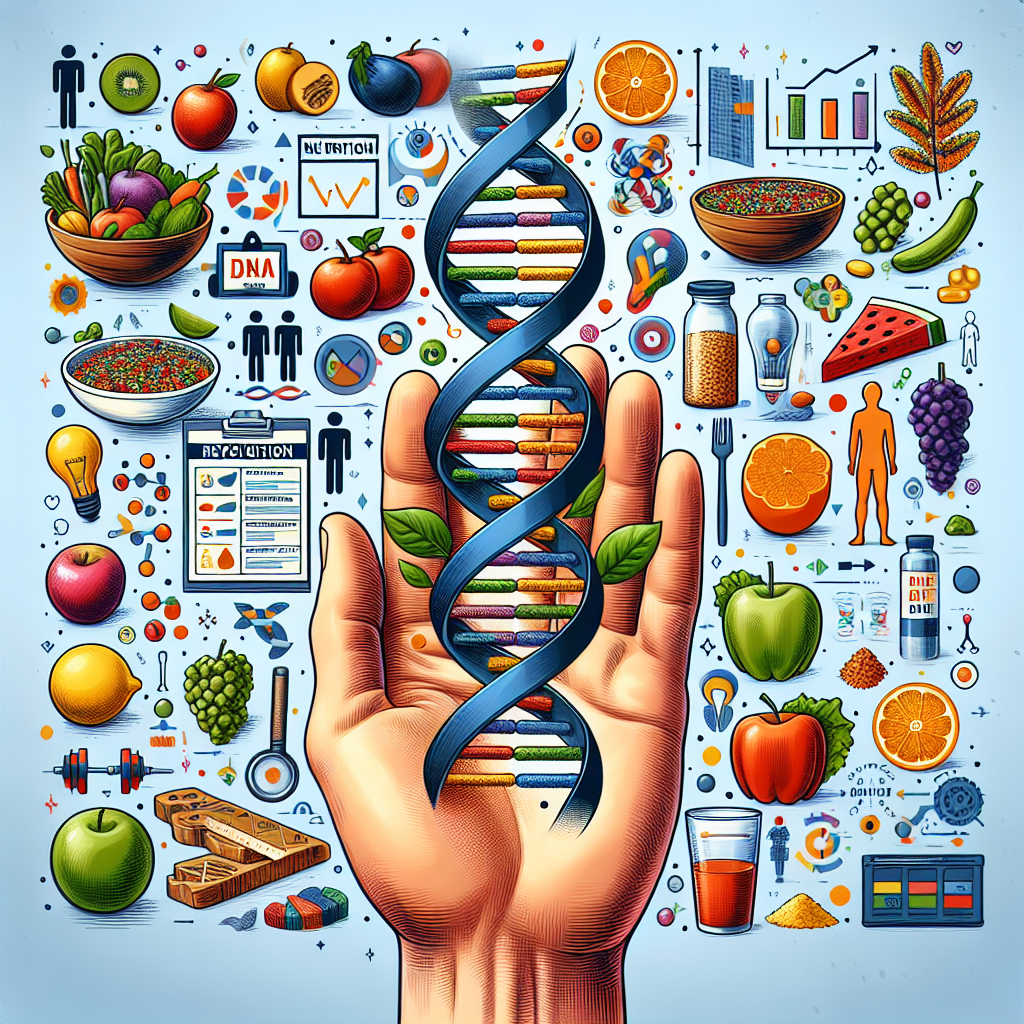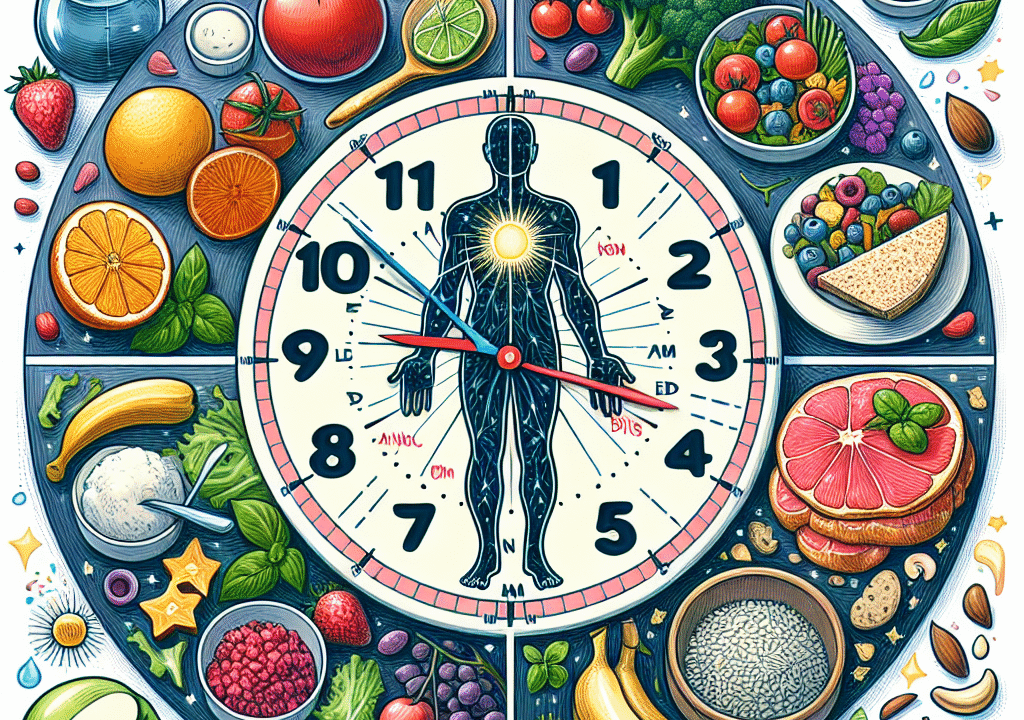
The Rise of Personalized Nutrition
In a world where health and wellness are top priorities, more individuals are moving away from standard diet plans and embracing something far more tailored—personalized nutrition based on genetic testing. According to a 2022 report by Grand View Research, the global personalized nutrition market is projected to reach $16.6 billion by 2027, reflecting the growing demand for DNA-based diet customization.
Thanks to advancements in nutrigenomics—the science of how genes influence nutrition—it’s now possible to personalize your diet according to your genetic makeup. As physician and genetic researcher Dr. Sharon Moalem puts it, “Your genes are the instruction manual for your body. Using them to guide your diet could become the gold standard of future health.”
This movement is more than just eating smarter—it’s about boosting energy, supporting longevity, and achieving optimal wellness on a personal level.
What Is Personalized Nutrition?
Personalized nutrition uses your unique biological data—such as your DNA, lifestyle, and gut microbiome—to develop a diet tailored specifically to you. Unlike generic advice such as “cut carbs” or “eat more vegetables,” this approach focuses on how your body uniquely responds to different foods and nutrients.
For instance, if you feel fatigued after eating bread or pasta, you may have a genetic sensitivity to carbohydrates. In that case, a Mediterranean or low-glycemic diet could be more effective for your individual needs.
Genetic testing, which is now more accessible than ever with many kits priced under $100, allows you to learn critical details about how your body:
– Metabolizes fats and carbohydrates
– Absorbs essential nutrients like vitamin B12 or vitamin D
– Processes substances like caffeine or lactose
When these genetic insights are paired with expert nutritional advice, the result is a tailored eating plan that supports everything from digestion to mental clarity.
How Genetic Testing Works for Nutrition
Nutritional genetic testing analyzes small variations in your DNA known as single nucleotide polymorphisms, or SNPs. These variations affect how your body responds to certain foods and nutrients.
Some of the genetic traits commonly evaluated include:
– Your ability to metabolize caffeine, determined by variants in the CYP1A2 gene
– Lactose intolerance, often traced to a mutation in the LCT gene
– Vitamin absorption efficiency, influenced by genes such as VDR (vitamin D) and MTHFR (folate)
– Appetite and eating behavior, connected to genes like FTO
For example, if your MTHFR gene isn’t functioning optimally—a condition present in up to 40% of Americans—your body may struggle to convert folic acid to folate, making methylated vitamin supplements a smarter choice.
As nutritionist Kate Llewellyn-Waters explains in her book The DNA Diet, understanding gene-nutrient interactions allows you to align nutrition with your body’s needs, not against them.
The Key Benefits of DNA-Based Diets
Weight Management
Personalized nutrition can have a transformative impact on your weight management journey. If you’ve struggled with various diets, your genetics may reveal why. DNA analysis can determine how effectively you process fats and carbohydrates, guiding you toward the most suitable eating plan.
For instance, if you have a heightened sensitivity to saturated fats, indulging in high-fat foods like cheese and butter could contribute to weight gain. A Mediterranean-style diet rich in whole grains, lean proteins, and healthy fats may be better suited for your genetic profile.
Chronic Disease Prevention
Your genes can indicate your predisposition to chronic conditions such as Type 2 diabetes, high cholesterol, or hypertension. Armed with this information, you can make proactive dietary changes to mitigate your risk before symptoms arise. A 2020 study in the journal Nutrients found that individuals with a genetic risk for hypertension significantly reduced their blood pressure through personalized diet plans.
Fitness and Exercise Enhancement
Whether you’re a casual exerciser or a competitive athlete, your genetic profile can help optimize your nutrition for energy, recovery, and performance. Genes like ACTN3 relate to muscle performance, while PPARG insights determine how effectively you use fat as an energy source.
For example, if your body metabolizes glycogen more slowly, a fat-adapted training diet may lead to better endurance with fewer carbohydrates.
Mental Health and Mood Improvement
Your genes also influence how your brain processes nutrients related to mood and mental health. Variants in genes such as COMT and MAOA can affect dopamine and serotonin levels—neurotransmitters that regulate mood, focus, and emotional well-being.
Targeted supplementation, such as omega-3 fatty acids for anxiety or methylated B-vitamins for balanced mood, can support better mental clarity and resilience.
Challenges and Considerations in Nutrigenomics
Despite its potential, personalized nutrition is still an evolving area of science. Not every genetic marker has been fully researched, and environmental factors like sleep, stress, and physical activity also play critical roles in overall health.
Experts caution against depending solely on DNA for nutrition decisions. Dr. Eric Topol, author of Deep Medicine, reminds us: “DNA isn’t destiny—it’s just one component of a complex health puzzle.”
Data privacy is also an important issue. Before selecting a genetic testing service, confirm that the company:
– Complies with HIPAA or GDPR privacy regulations
– Does not sell or share data without explicit consent
– Offers transparency and an option for data deletion
Remember, the most effective personalized nutrition strategy blends genetic insights with holistic wellness practices, including exercise, sleep, and emotional well-being.
How to Start with Personalized Nutrition
If you’re ready to embrace a gene-tailored lifestyle, here’s a quick-start guide:
1. Choose a credible provider such as 23andMe, Nutrigenomix, or MyDNA. Ensure the service offers transparency, scientific validity, and positive user reviews. Many options are eligible for HSA or FSA use.
2. Partner with a registered dietitian, certified genetic counselor, or expert in precision nutrition to make sense of your results. Self-interpretation of raw genetic data can be overwhelming and inaccurate.
3. Monitor and adapt your plan. As your body and lifestyle evolve, your nutritional needs will change too. Stay flexible and embrace periodic adjustments for continued success.
According to a 2021 report from the National Institutes of Health, people adhering to personalized nutrition plans showed 23 percent greater compliance compared to those following general dietary recommendations.
The Future of Nutrition Is Personal
The direction of dietary science is clear: we are moving toward more personalized, data-driven approaches that put control back in your hands. Genetic testing equips you with knowledge about your body’s unique nutritional blueprint—offering benefits far beyond traditional nutrition advice.
Whether you want to lose weight, enhance physical performance, or improve mental clarity, personalized nutrition has the potential to help you reach your goals with precision and confidence.
As technology and biological sciences continue to develop, even deeper layers of personalization will become available—from understanding drug metabolism to identifying food allergies and sensitivities.
Take Control of Your Nutritional Blueprint
Ready to uncover what your DNA says about your ideal diet? The first step is to consult your doctor or work with a certified expert through a reputable provider. For more wellness resources and tailored supplement options, visit eDrugstore.com.
References
– Grand View Research. “Personalized Nutrition Market Size, Share & Trends Analysis Report.” 2022.
– National Institutes of Health. “Nutrigenomics and Disease Prevention.” 2021.
– Nutrients Journal. “Nutrigenomic Influence on Blood Pressure Management.” July 2020.
– Llewellyn-Waters, K. “The DNA Diet.” 2017.
– Topol, E. “Deep Medicine: How Artificial Intelligence Can Make Healthcare Human Again.” 2019.


